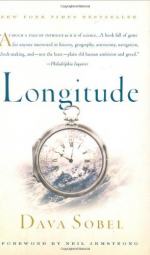
|
| Name: _________________________ | Period: ___________________ |
This quiz consists of 5 multiple choice and 5 short answer questions through Chapter 13: The Second Voyage of Captain James Cook.
Multiple Choice Questions
1. What disease afflicted many sailors at sea for long periods of time?
(a) Malaria.
(b) Typhoid fever.
(c) Hepatitis.
(d) Scurvy.
2. Why was Maskelyne against Harrison?
(a) Maskelyne wanted to use his lunar-distance method to solve the problem of longitude.
(b) Maskelyne was jealous of the support Harrison was getting from the Board of Longitude.
(c) Maskelyne was supportive of Harrison but didn't believe his clocks would work.
(d) Maskelyne disliked Harrison's family.
3. Where was the destination the Centurion was sailing for?
(a) Scilly Islands.
(b) Tierra del Feugo.
(c) Cape Noir.
(d) Juan Fernandez Island.
4. Who was in command of the ships that ran into the Scilly Islands near England?
(a) Commodore George Anson.
(b) John Harrison.
(c) Samuel Pepys.
(d) Admiral Sir Clowdisley Shovell.
5. What advantage did the magnetic variation method have over astronomical approaches at determining longitude?
(a) Longitude could now be charted on a map.
(b) It didn't rely on wouding animals.
(c) It utilized new technology in clockmaking.
(d) It did not depend on knowing the time at two places at once.
Short Answer Questions
1. Where did William sail on the second test of H-4?
2. Who took Nathaniel Bliss's spot on the Board of Longitude?
3. How many days per month would the lunar distance method not work.
4. Who did Harrison first contact when he arrived in London?
5. How many more times accurate was the H-4 than the Longitude Act required?
|
This section contains 251 words (approx. 1 page at 300 words per page) |

|




